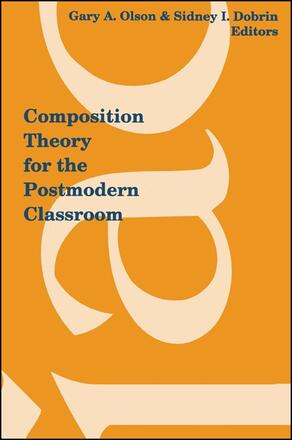
Composition Theory for the Postmodern Classroom
Alternative formats available from:
Description
Composition Theory for the Postmodern Classroom is a collection of the most outstanding articles published in the Journal of Advanced Composition over the last decade. Together these essays represent the breadth and strength of composition scholarship that has fruitfully engaged with critical theory in its many manifestations. In drawing on the critical discourses of philosophers, feminists, literary theorists, African Americanists, cultural theorists, and others, these compositionists have enriched the discourse in the field, broadened intellectual conceptions of the multiple roles and functions of discourse, and opened up an infinite number of questions and new possibilities for composition theory and pedagogy.
Gary A. Olson is Professor of English and teaches in the graduate program in rhetoric and composition at the University of South Florida. He is the author of Philosophy, Rhetoric, Literary Criticism: (Inter)views. Olson served as editor of the Journal of Advanced Composition from 1985-1994. Sidney I. Dobrin teaches composition, technical writing, and professional writing for graduate students at the University of South Florida, where he serves as Associate Editor of JAC.
Reviews
". ..Composition Theory for the Postmodern Classroom comes into place at a critical moment. We have worked assiduously to flesh out the ways and means of composition for a new era. This text helps to document our way. " --Jones Royster, from the Foreword
"JAC has been a central resource for the presentation and consideration of 'theory' in composition studies. These essays act as springboards for reflecting on the ways in which we interrogate and problematize in this discourse community.
"As I read the collection of essays, I was frequently reminded that despite seemingly indefinite variation in the circumstances of teaching, composition teachers do not treat theory as a refuge from practice, but value instead what it can tell them about writing and writing pedagogy. I hear in these essays echoes of an inclination to reject precepts that ignore writing and teaching in the name of common sense, and I see traces on the paths taken of the uncommon intention to practice and teach writing--for a change. " -- Linda Brodkey, from the Afterword